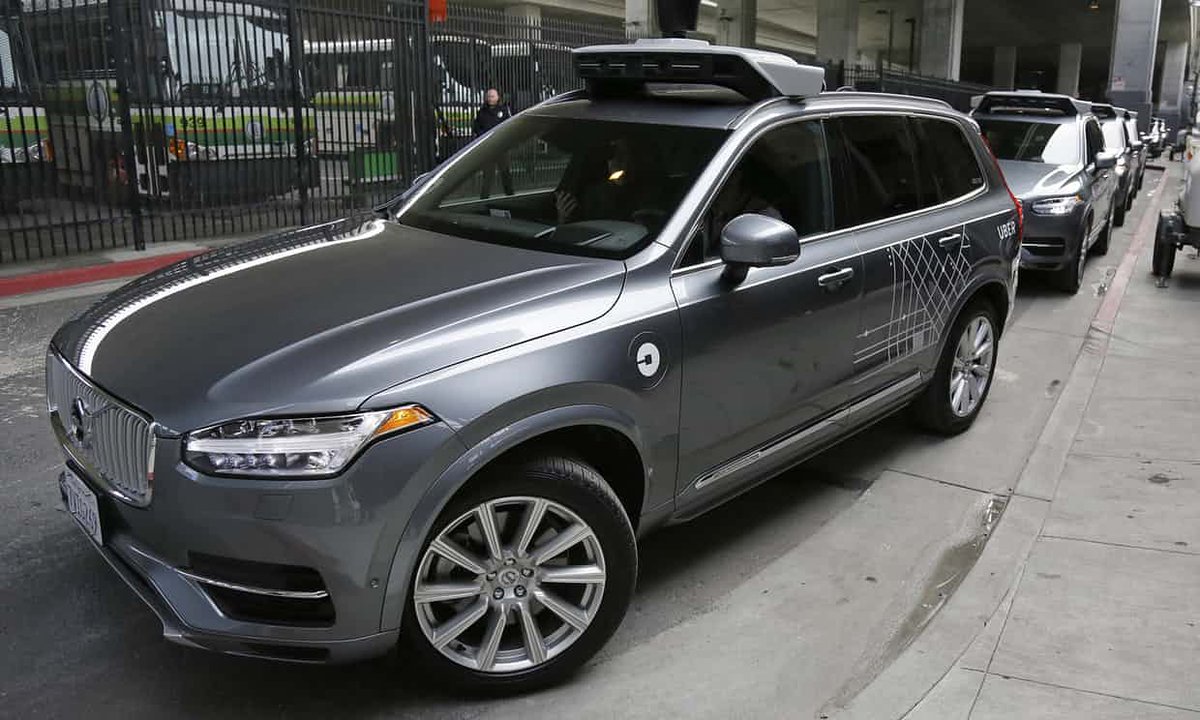by jsideris

Background
For anyone who isn’t in the loop, one of Uber’s self-driving cars got into an accident yesterday, killing a pedestrian. You can read about the indecent here.
For context, Uber announced last year that they planned to buy 24000 autonomous cars from Volvo.
Theory
The tech behind autonomous cars is pretty decent so far, but still in its infancy. Computer vision is hard, and still has a long way to go. It will get there. But statistically speaking, rolling out this many autonomous cars at once is a recipe for disaster. I’m not suggesting that Uber did anything malicious like sabotage the vehicle or neglect to ensure that it was properly maintained. But it seems more than likely to me that they must have been aware of the statistical probability of a fatality happening at the scale that they were operating at. Further, I believe this accident will actually benefit them, which only strengthens their motivation to adopt the technology on such a wide scale…
Motive
I think Uber’s motive for adopting autonomous cars is pretty much crystal clear… But aside from the obvious first-mover advantage, and the fact that the liability for this accident will probably fall largely on the manufacturer and not on Uber, the accident itself is actually beneficial for Uber.
Obviously, the company is losing money in the short run off of this accident. They’ve temporarily suspended all autonomous operations. And I’m sure there will be lawsuits (even if they aren’t found to be 100% liable), etc. But what about long term?
An accident like this demonstrates that autonomous cars are dangerous. And if they’re dangerous, maybe we should regulate them. Why might Uber want regulations on the autonomous car? Because they know that autonomous cars are an inevitable part of our future, and they want to make it harder for you or I to buy one, or for entrepreneurs to start their own competing fleets, because they want us to use their service – Uber, the ones with the first-mover advantage.
In an ironic way, this recent accident will ultimately create barriers to entry for Uber’s future competitors. Uber doesn’t want just anyone to run their own fleet. Just like any other competitive company, they want to own a monopoly. And they’ll get it, because they’re already the biggest company doing ride sharing with the most lobbying power.
Proof (Of Motive)
I’m glad you asked. Uber has signed onto a document called “Shared Mobility Principles for Sustainable Cities”. Most of the principals on the list seem benign… but then:
10. WE SUPPORT THAT AUTONOMOUS VEHICLES (AVS) IN DENSE URBAN AREAS SHOULD BE OPERATED ONLY IN SHARED FLEETS. Due to the transformational potential of autonomous vehicle technology, it is critical that all AVs are part of shared fleets, well-regulated, and zero emission. Shared fleets can provide more affordable access to all, maximize public safety and emissions benefits, ensure that maintenance and software upgrades are managed by professionals, and actualize the promise of reductions in vehicles, parking, and congestion, in line with broader policy trends to reduce the use of personal cars in dense urban areas.
So basically, they’re coming for your cars. This cannot happen by itself. It requires a regulatory ban on non-fleet self-driving cars in cities. This requires public support. Uber benefits by people fearing autonomous cars, and demanding tight regulations in the name of safety. There are several benefits here:
- You will ultimately be forced to use a ride sharing program to get to work or live your life.
- The resulting licensing infrastructure will inevitably make it extremely difficult and expensive for competitors to enter the market.
- Having a monopoly on purchasing cars gives them an enormous amount of buying power that they can use to force manufactures to drop their prices as low as possible.
- Having a monopoly on car sharing (and cars in general) gives them an enormous amount of selling power that they can use to price gouge consumers.
Closing Remarks
I believe this is all inevitable. While the accident can be used as a data point to speed up the process of AVS monopolization, all of the economics for this line up perfectly. I could do a whole other post on this explaining step by step how governments will position themselves to revoke your right to own a car, but I won’t because I don’t want to spam the sub. Just check out this video if you have 20 minutes and an interest in economics.
I want to be clear that I’m not accusing Uber of negligence or homicide. The choice to use autonomous cars may ultimately save more lives long term, and could very well be safer than using human drivers. I respect Uber, and I like their business model. But don’t make the mistake of assuming that their intentions are completely genuine. I believe full-heartedly that they have a vested interest in monopolizing the ride sharing industry.
TLDR Edit: Allows Uber to push for regulation on autonomous vehicles that would allow them to monopolize ride sharing and prevent consumers from operating their own car.